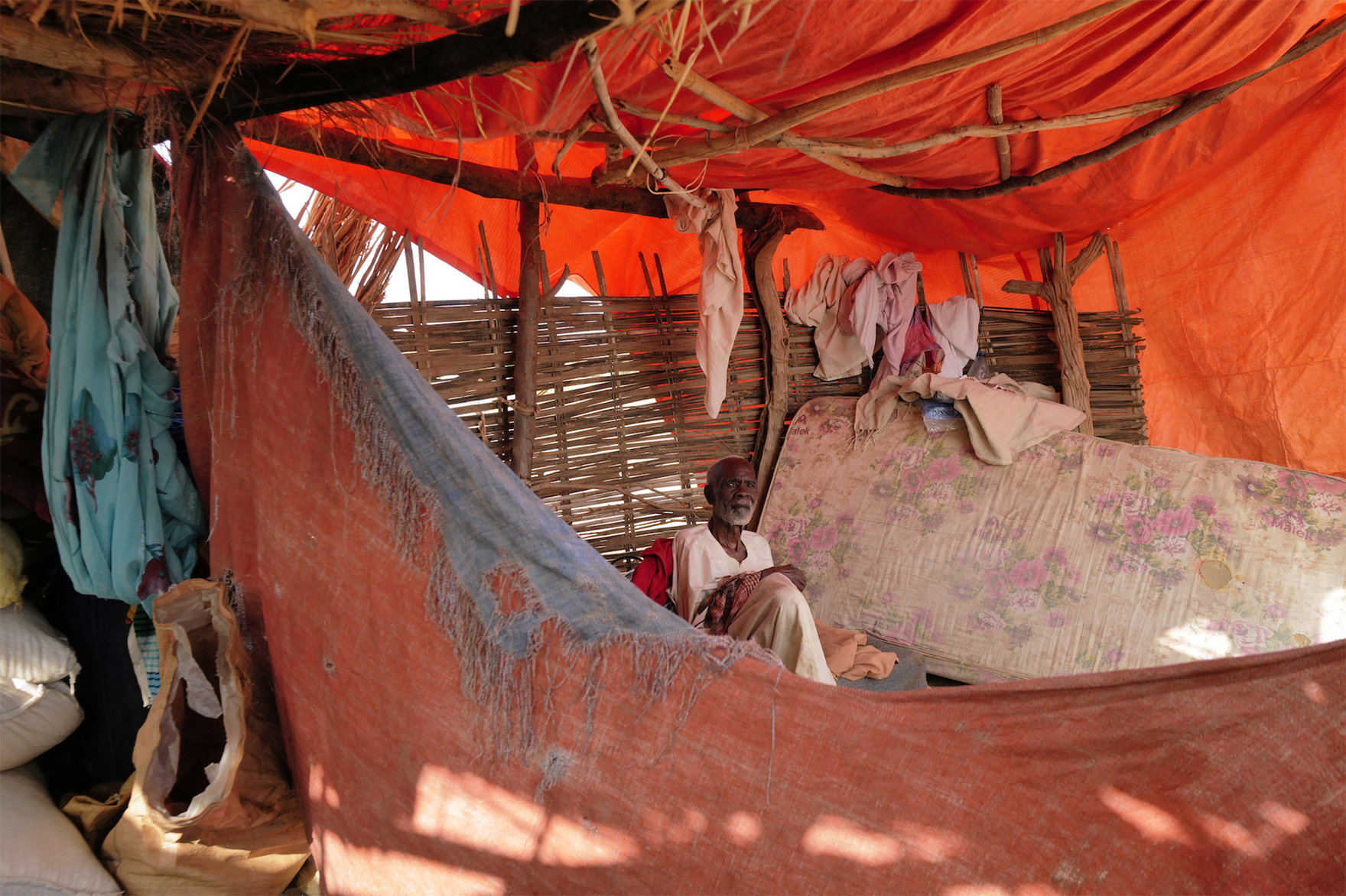Canadian foreign policy has, at many pivotal and sometimes lonely moments, led with values. The decision not to join the second Iraq War, the enduring moral voices of Lieutenant-General (Retired) Roméo Dallaire and Louise Arbour, and, most recently, the country’s stalwart support for Ukraine all illustrate a Canadian identity on the global stage that focuses on democracy, human rights and the rule of law.
While considering a foreign agent registry, Canada should assertively place these values front and centre — rather than take a narrow view of national interest. Designed thoughtfully, a foreign agent registry can be an effective tool for promoting human rights. Specifically, Canadians deserve to know when domestic public affairs firms are hired by actors that are widely considered to be foreign human rights violators and are seeking to improve their images. Given the global reach of common reputation management tools in the digital era — running the gamut from social media to media and public relations — there’s a need for a domestic, institutionalized mechanism to establish and maintain transparency. Otherwise, Canada becomes complicit in shielding the activities of public relations firms that choose to represent governments and individuals widely recognized to be among the world’s worst actors.
Shining a Light on Canadian Companies
The international community faces an appropriate reckoning for its role in Sudan’s current violence, as noted by Jacqueline Burns of RAND Corporation in The New York Times and reported by Robbie Gramer in Foreign Policy. Such perspectives are important to improving international responses to, and outcomes of, violent conflict. However, the crisis in Sudan also illustrates a specific vulnerability in Canada’s legal framework — one that, in the view of the author, undermines Canadian values at home and abroad: Canada maintains no domestic institutional mechanism that records or reports when Canadian public relations firms are hired to burnish the images of foreign actors that are widely considered to be human rights violators.
In June 2019, journalist Geoffrey York reported for The Globe and Mail that the Montreal-based firm Dickens & Madson, led by Director Ari Ben-Menashe, had signed a US$6 million contract with the “Transitional Council of Sudan” — that is, the alliance of security leaders who first took power in a 2019 coup against the then president Omar al-Bashir, prior to staging a subsequent coup in 2021 against the nascent civilian government, and who are now fighting each other at devastating expense to the civilian population.
York’s 2019 reporting references Dickens & Madson’s disclosures, made available by the US Foreign Agents Registration Act (FARA). The Canadian firm was registered as lobbying on behalf of the Transitional Council of Sudan in the United States, Russia, Saudi Arabia, the United Nations and the African Union, among other possible targets. The contracted services provided by Dickens & Madson to the Transitional Council included media and public relations services, in addition to help in securing funding for arms acquisitions. York notes that the contract was countersigned by one of the aforementioned Sudanese paramilitary leaders, General Mohamed Hamdan Dagalo, popularly known as “Hemedti.”
Hemedti’s Rapid Support Forces (RSF) have a long-documented history of involvement in atrocities against civilians in Darfur and against pro-democracy demonstrators in Khartoum. Most recently, Yale University’s Humanitarian Research Lab assessed that the June 2023 extrajudicial killing of the civilian governor of West Darfur, Khamis Abdullah Abkar, was “highly likely” to have been perpetrated by the RSF. York’s 2019 reporting led to considerable public pressure from groups such as Amnesty International Canada and eventually a referral from the federal government to the Royal Canadian Mounted Police (RCMP). According to subsequent reporting by the Globe’s Steven Chase, Ben-Menashe told the newspaper he had been cleared of any wrongdoing by both the RCMP and the United Nations.
It’s fair to say that during the most recent violence in Sudan, the current state of the relationship between Hemedti, the now defunct Transitional Council, and Dickens & Madson, in terms of the services the latter may or may not be providing, isn’t publicly known. Indeed, it’s unclear whether they still have a relationship. It appears that Hemedti has not personally been named in a filing by Dickens & Madson since 2021. Whether this can provide any certitude, one way or another, about the status of the relationship, is unclear.
The Transitional Council continues to be listed as a client, without further detail, in Dickens & Madson’s most recent relevant US disclosures, filed on January 28, 2023. Both Hemedti and his rival, former Transitional Council member Sudanese General Abdel Fattah al-Burhan, have used digital propaganda to burnish their image with evidence of external support, as illustrated in a recent opinion piece for CIGI by Maram Mahdi and Kyle Hiebert.
Absent timely, confirmed disclosure mechanisms, many credible researchers — such as UK-based Claire Wilmot, in this April 18 Twitter thread — have raised questions about past links between Sudanese leaders and Dickens & Madson. On April 20, 2023, Mat Nashed of Al Jazeera reported that Hemedti had approached a French firm for public relations support, which may raise questions about whether Hemedti is still working with Dickens & Madson. The possibility that there may no longer be a relationship is bolstered by reporting from Africa Intelligence and The Africa Report, both suggesting that other firms are currently supporting Hemedti and the RSF. However, there is no credible, timely mechanism to clarify whether any Canadian firm is involved, or how. (Dickens & Madson has a listed street address in Montreal, but no active phone listing or website. Efforts to reach the company were unsuccessful.)
Given the global reach of common reputation management tools in the digital era, there’s a need for a domestic, institutionalized mechanism to establish and maintain transparency.
Based on publicly available information, it appears that Dickens & Madson has helped other clients manage a reputation clouded with political repression and human rights violations. In March 2021, Julian Pecquet of the since-discontinued news site Foreign Lobby Report detailed Dickens & Madson’s relationship with Mya Tun Oo, then and now the defence minister, and now also the deputy prime minister, of Myanmar. Pecquet cited, among other materials, a US FARA Registration available here. Mya Tun Oo had engaged the firm for services including media and public relations, with the aim of removing targeted sanctions related to the 2021 anti-democratic coup in that country.
A few months later, the Globe’s Chase reported that Ben-Menashe had “paused” the Myanmar contract due to lack of payment — ironically, related to the sanctions his firm had been hired to help remove.
In addition, Ben-Menashe and Dickens & Madson reportedly have held controversial contracts with other governments including Libya (filed November 2014), Zimbabwe (filed March 2002, naming Canada as one of the targets) and Kyrgyzstan (filed December 2020). The company’s work with Dr. Arthur Porter was connected to the latter’s resignation as chairman of Canada’s Security Intelligence Review Committee, after the National Post in 2011 revealed their contract posed a conflict of interest, among other issues.
Considerations for Canadian Law Makers
Dickens & Madson’s links to Sudan have been revealed through determined investigative journalism, and often confirmed through declarations required under US law. Ben-Menashe’s work with the Government of Zambia is reported in Canada’s lobbyist registry, under the name Carlington Sales Company, which appears in no other listings. The name of Dickens & Madson appears nowhere in the registry, presumably because their activities haven’t triggered a reporting requirement under the Lobbying Act.
US corporate disclosures relied upon by Canadian journalists remain sporadic and somewhat opaque, as the outdated legal requirements allow long lag times between such disclosures — which often limits the real-time utility of the FARA filings to human rights investigators. The reporting of ongoing activities is focused primarily on US lobbying targets and is, once a contract has been filed, retrospective. Given the transnational character of this industry, it seems clear that Canadian citizens should have access to an effective, timely, Canadian-based institutionalized mechanism that provides for transparency when foreign governments or actors seek to influence public opinion via a Canadian firm.
As Canadian law makers are reportedly considering how to build a foreign agent registry here, the narrowest interpretation of national interest should not be the rule. Values-based cases for greater transparency, as Sudan’s clearly is, should be considered as well.
It’s important to note here that foreign agent registries, even when intended to protect human rights, are not without risk to those same rights. Defenders of the oft-referenced US law point out that FARA does not limit speech in the United States because it focuses narrowly on transparency. However, the 1930s-era US law, originally designed to counter Nazi propaganda, remains in need of revision and reform. There are concerns that, if drafted poorly, a Canadian registry could increase harassment or chill participation by marginalized communities in Canada, as noted in a recent petition sponsored by Liberal member of Parliament Chandra Arya. A reporting measure aimed at firms working with a client or clients in China, for example, could arguably lead to unfair treatment of Canadians of Chinese origin or could lead some to refrain from engagement in civic space for fear that they will be targeted. This could undermine even the best efforts to protect those communities from authoritarian overreach by the Chinese state.
There is also a legitimate concern that, if not drafted carefully, new registration requirements in Group of Seven states such as Canada, Australia and the United Kingdom could provide cover for foreign governments seeking to use such laws for domestic political repression. These are important concerns that have been comprehensively addressed by the International Center for Not-for-Profit Law with respect to the US context. That work can be useful to avoiding pitfalls in new Canadian legislation.
Recommendations
As the discussion of solutions continues, I offer four recommendations:
- Consider human rights–focused test cases: Values-based use cases bring fundamentally different considerations than do those focused on a narrow view of national interest. As law makers review the potential uses of a registry, test cases should include those of actors widely recognized to be human rights violators, who engage Canadian agents in an effort to burnish their images.
- Build transparency and protect fundamental freedoms: The goal of foreign influence registries should be to provide timely transparency and to further efforts to investigate human rights transgressors. Legislation pertaining to foreign registries should be drafted to protect fundamental freedoms, including expression and association. Enforcement of registry requirements must also be above reproach to protect these rights.
- Focus on behaviour, not specific foreign actors: Requiring only agents representing actors from specific countries to register would leave Canada vulnerable to those not included — such as foreign actors who emerge as human rights violators, are newly seeking to influence Canada, or are new clients of Canadian companies. Such limited targeting would also increase the risk that legislation could further marginalize entire ethnic communities, even those communities it seeks to protect. Rather, legislation should focus, as the Lobbying Act does, on timely reporting of specific actions. Among other benefits, this focus would account for the possibility of problematic actions by nominally benign actors.
- Include contracts between foreign governments and Canadian firms, even where Canada isn’t the target: Firms such as Dickens & Madson currently fly under the radar where not covered by foreign legal frameworks. This grey area may make Canada attractive to firms hoping to evade transparency. Canadian public relations and lobbying firms should be required to be transparent any time they are working within Canadian jurisdiction for a foreign government, in order to protect Canadian credibility globally.
As Canadian law makers examine the nuance required for an effective law to shine a light on foreign influence in Canada, values must drive the conversation.
The bottom line? Canadians deserve transparency when foreign influence exercised via Canadian companies has the potential to undermine Canadian values at home and abroad. Canadian citizens deserve to derive that transparency from Canadian law. And when Canadians look at ways for the international community to help in heartbreaking cases such as Sudan, they should know that at least one policy response is achievable right here at home.



